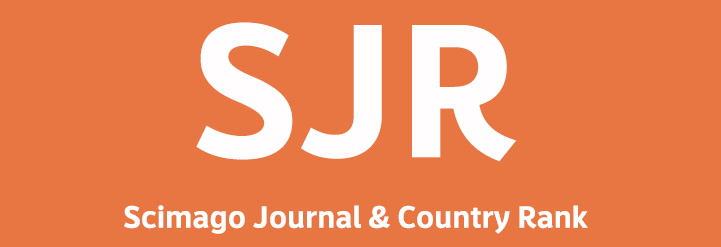PRODUCTION OF GASOLINE COMPONENTS IN ASEAN REFINERIES AND EFFECTS OF THE STRICTER FUEL QUALITY REQUIREMENT
DOI:
https://doi.org/10.29017/SCOG.25.3.1072Keywords:
Gasoline, Asean Refineries, Stricter FuelAbstract
Intensive implementation of the blue sky program in many countries imposed the use of reformulated gasoline with a very sophisticated specification. Motor gasoline is essentially a complex mixture of hydrocarbons distilled between 40 and 220 C, which consist of distillate fraction of crude oils and the conversion products of crude oil fractions. Small amounts of additives are also used to enhance various aspects of the performance of gasoline. In ASEAN refineries, over 740 MBPSD of feed- stock is processed which produce about 512 MBPSD of gasoline components. About 96 percent of the amount is processed in 39 units of the heterogeneous catalytic processes: i.e. cracking. reforming and isomerization, and the other 4 percent in 4 units of homogeneous catalytic processes: L.e. alkylation and polymerization. Volatility, octane number, hydroegtys4 com: position and impurity content are the most determinant criteria of the gasoline. In most spark-ignition internal combustion engines, the fuel is metered in liquid form through the carburettor or fuel injector, and is mixed with air and partially vaporized before entering the cylinders of the engine. Consequently. volatility, is and extremely important characteristic with respect to starting, driveability, vapor lock, dilution of engine oil fuel economy, and carburettor icing. To increase the octane level of gasoline an anti knock agent such as tetraethyl lead (TEL) or tetramethyl lead (TML) can also be used. Pres- sures to reduce atmospheric pollution are tending towards the reduction or elimination of lead from gasoline. Lead itself is known to be a poison and its presence in the exhaust gas is undesirable. Leudacts as a catalyst poison of catalytic converter installed to reduce carbon monaxide and hydrocarbon emission. Methyl tertiary butyl ether (MTBE) is one of the alternative to replace lead alkyls, and has been used as antiknock. Unleaded gasoline (ULG) has been introduced since 1990 in ASEAN Countries: The actual penetration of ULG utilization in the first half of 1998 are as follows : Brunei Darussalam 48.9 , Indonesia 0.6 %. Malaysia 80 %, Philippines 17.7 %, Singapore 81 %. and Thailand 100%. The passage of the Clean Air Act Amendment of 1990 in the USA has forced American refiners to install new facilities to comply with stricter specifications for fuels such as gasoline and diesel oil. Various terms in the models address quality of the gasoline blended, sulfur content, and total aromatics and olefins contents, RVP, the Tof distillation range, sulfur content, and oxygenated content. Specifications for the reformulated gasoline and the ASEAN commecial gasoline are presented. Driveability index (DI) has been standardized by ASTM D-4814-98a and in the near future this DI could be recommended in the specification for the reformulated gasoline. Reformu- lated gasoline can be blended from the high quality gasoline components. Volatitity (RVP. T T T and driveability index), octane number (RON, MON and octane distribution), and hydrocarbon compositions of the gasoline components, as well as the refinery configuration to improve the quality of the gasoline components, and the compositions of these improved gasoline components of reformulated gasoline production are briefly discussed in this paper.References
Robert. J. Beck, 1996, Oil Supply Increase Due in 1996 Second Half, Oil and Gas
Journal, July 29, 1996. Pp 57-76
John R. Dosher, Jack T. Carney, 1994, Sulfur Increases Seen Mostly in Heavy Fractions
of Lower Quality Crudes, Oil and Gas Journal, May 23, pp. 43-48.
Tan Chen, 1994, Clear Motor Fuels- Implications and Challenges Facing Singapore
Refineries, 2nd ASCOPE Refining Workshop, Manila, Philippines, October 12.
A.S. Nasution, and E. Jasjfi. 1996, Production of Gasoline and Impact of More
Stringent Specification on Catalyst Performance", 4 ASCOPE Refining Workshop,
Thailand. November.
A.S. Nasution, and E. Jasjfi. 1994, Strategic Collaboration Among ASEAN Refineries
for the Pro-duction of Reformulated Fuels, 26th IPA, Jakarta, May 19-21.
World-Wide Fuel Charter, 1999, 5th Annual Fuels of Lubes Asia Conference,
Singapore, January 25-28.
News, 1994, California Refiners Face Hurdle in Federal State RFG Rules, Oil and Gas
Journal, October 10, pp. 23-28.
Special Report, 1996, Fuel Quality Standards for Year 2000 Proposed by the European
Commission, Fuels and Lubes International, December 1996, vol. 2 No. 12, pp. 10-11.
E. Jasjfi, 1993, "Trend and Development in the petroleum fuel qualities in ASEAN
countries", 4th ASCOPE Conference and Exhibition, Bangkok, Thailand
Downloads
Issue
Section
License
Copyright (c) 1970 SCIENTIFIC CONTRIBUTIONS OIL AND GAS (SCOG)

This work is licensed under a Creative Commons Attribution 4.0 International License.
Authors are free to Share — copy and redistribute the material in any medium or format for any purpose, even commercially Adapt — remix, transform, and build upon the material for any purpose, even commercially.
The licensor cannot revoke these freedoms as long as you follow the license terms, under the following terms Attribution — You must give appropriate credit , provide a link to the license, and indicate if changes were made . You may do so in any reasonable manner, but not in any way that suggests the licensor endorses you or your use.
No additional restrictions — You may not apply legal terms or technological measures that legally restrict others from doing anything the license permits.














